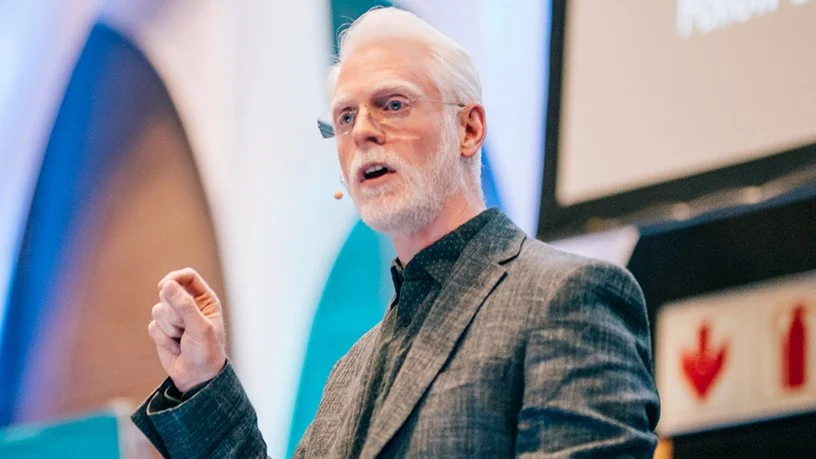
Offensive Cyber Deception Masterclass
A training event like no other—
for red teamers, security awareness pros, IT leaders, or anyone who wants to weaponize creativity, outmaneuver deception, & understand the cognitive battlefield.
Aug 2 - 5, 2025
Las Vegas, NV, USA
Learn. Evolve. Defend.
Weapons grade deception has been democratized.
It’s time for us to level-up our defenses.
From deepfakes to AI-powered social engineering, we’re entering a new era of deception where perception is the primary battleground.
This immersive 4-day masterclass gives you the skills to harness and defend against the next generation of cyber deception threats. You’ll learn how threat actors are using LLMs, voice cloning, and video manipulation to hijack trust and distort reality—and how to flip the script.
In this hands-on course, you'll learn to:
Build AI-powered scam bots using large language models to simulate phishing, vishing, and persuasion-based attacks.
Craft synthetic media attacks including real-time audio and video deepfakes, social validation traps, and coordinated narrative warfare.
Deploy defensive countermeasures like honeybots—deceptive AI agents designed to detect and disrupt synthetic social engineering attacks.
Exploit and defend cognitive vulnerabilities by mastering psychological frameworks drawn from military, intelligence, and political influence operations.
Simulate multi-stage attack chains using AI personas, voice voicemails, fake authority, and narrative priming tactics.
By the end, you won’t just understand offensive cyber deception, you’ll embody it.
Whether you’re on the red team, blue team, or a strategist preparing for the future of hybrid warfare, this is your tactical toolkit for the synthetic media age.
A World Class Team of Instructors
-

Perry Carpenter
Perry Carpenter is a multi-award-winning author, podcaster, and speaker with a passion for deception and technology. With over two decades in cybersecurity, Perry has dedicated his career to understanding how cybercriminals exploit human behavior.
Perry's career has been a relentless pursuit of understanding how bad actors exploit human nature. His fascination for the art and science of deception began in childhood with magic tricks and mental manipulations, evolving into a mission to protect others from digital threats. As the Chief Human Risk Management Strategist at KnowBe4, Perry helps organizations and individuals build robust defenses against the ever-evolving landscape of online deceptions.
His latest book, FAIK: A Practical Guide to Living in a World of Deepfakes, Disinformation, and AI-Generated Deceptions (Wiley: Oct 2024), tackles the fascinating and often daunting world of artificial intelligence. He explores AI's potential benefits and the darker side of its application in deception and misinformation. Through engaging storytelling and practical advice, Perry equips readers with the knowledge and tools needed to navigate the complexities of AI-driven deception.
-

Cameron Malin
Cameron Malin is a former prosecutor, Federal Bureau of Investigation (FBI) Special Agent/Behavioral Profiler and author of industry renowned information security books. Serving as an FBI Behavioral Profiler for over a decade, Cameron was the creator and founder of the Cyber Behavioral Analysis Center, the FBI Behavioral Analysis Unit’s (BAU) capability to behaviorally assess cyberattackers. Recognizing the need to address adversary information operations, Cameron also created and founded the FBI BAU’s Deception & Influence Group, an elite team of Profilers with unparalleled experience assessing and countering influence and information operation tactics used by malicious actors. A recognized leader in the intelligence community, Cameron created and team-led a select group of international government partners as part of the Five-Eye Behavioral Consortium to Combat Ransomware.
Through his tenure as a Behavioral Profiler and as a Special Agent in the prestigious FBI Los Angeles Division Cyber Program for a decade prior, Cameron developed an unmatched level of expertise investigating and profiling cyber adversaries domestically and around the globe. An information security thought leader, Cameron has authored a number of industry renowned books, including the Malware Forensics books series, Deception in the Digital Age: Exploiting and Defending Human Targets through Computer-Mediated Communications, and the forthcoming book, Synthetic Media, Deep Fakes, and Cyber Deception: Attacks, Analysis, and Defenses.
-

Dr. Matthew Canham
Dr. Matthew Canham is the Executive Director of the Cognitive Security Institute and a former Supervisory Special Agent with the Federal Bureau of Investigation (FBI), he has a combined twenty-one years of experience in conducting research in cognitive security and human-technology integration. He built his first multi-layer perceptron in 2003 and has been working in the cognitive security and artificial intelligence domain ever since.
He currently holds an affiliated faculty appointment with George Mason University, where his research focuses on the cognitive factors in synthetic media social engineering and online influence campaigns. He was previously a research professor with the University of Central Florida, School of Modeling, Simulation, and Training’s Behavioral Cybersecurity program. His work has been funded by NIST (National Institute of Standards and Technology), DARPA (Defense Advanced Research Projects Agency), and the US Army Research Institute. He has provided cognitive security awareness training to the NASA Kennedy Space Center, DARPA, MIT, US Army DevCom, the NATO Cognitive Warfare Working Group, the Voting and Misinformation Villages at DefCon, and the Black Hat USA security conference. He holds a PhD in Cognition, Perception, and Cognitive Neuroscience from the University of California, Santa Barbara, and SANS certifications in mobile device analysis (GMOB), security auditing of wireless networks (GAWN), digital forensic examination (GCFE), and GIAC Security Essentials (GSEC).
-

Dr. Cameron Jones
Dr. Cameron Jones is a postdoctoral scholar at the Cognitive Science department at UC San Diego investigating the risks that LLMs and AI technologies pose through persuasion and deception. He completed his PhD in Cognitive Science, where his dissertation work established that LLM achieve parity with humans at social cognition tasks and that people cannot distinguish between humans and LLMs in a Turing test. His current research focuses on how capabilities advancements could lead to a rapid increase in risks from persuasive and deceptive AI through reinforcement learning, agent architectures, and developing trust and rapport through social relationships.
-

Dr. Fred Heiding
Dr. Fred Heiding is a research fellow at the Belfer Center’s Defense, Emerging Technology, and Strategy (DETS) program at Harvard Kennedy School. His work focuses on computer security at the intersection of technical capabilities, business implications, and policy remediations. Fred is a member of the World Economic Forum's Cybercrime Center, a teaching fellow for the Generative AI course at Harvard Business School, and the Senior Executive in National and International Security course at the Harvard Kennedy School. Fred also leads the cybersecurity division of the Harvard AI Safety Student Team (HAISST). His work has been presented at leading conferences, including Black Hat (2023 and 2024), Defcon, BSides, and leading academic journals like IEEE Access and professional journals like Harvard Business Review. He has assisted in the discovery of more than 45 critical computer vulnerabilities (CVEs). In early 2022, Fred got media attention for hacking the King of Sweden and the Swedish European Commissioner.

Deepfakes. Narrative Warfare. Cognitive Security
Are You Prepared?
The next wave of synthetic media and cognitive attacks is already here. It’s time to prepare.
Come join the mission.

